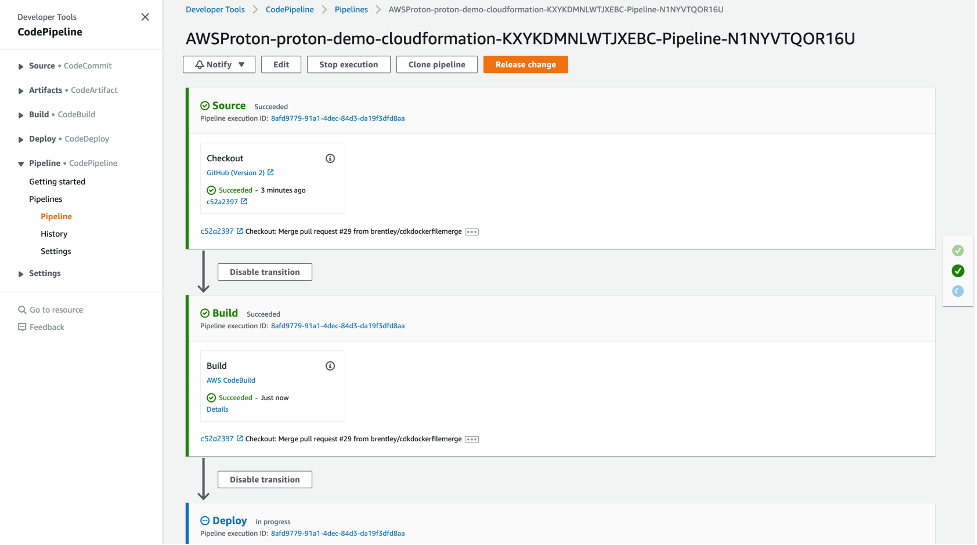Containers
Category: Events
Guide to Amazon EKS and Kubernetes sessions at AWS re:Invent 2025
In this post, we provide a comprehensive guide to the 48 Amazon EKS and Kubernetes sessions at AWS re:Invent 2025, covering everything from simplified cluster management with Amazon EKS Auto Mode to advanced AI/ML workload orchestration, platform engineering, and production-grade security strategies. Whether you’re new to Kubernetes or architecting multi-region platforms, you’ll find sessions tailored to your needs across workshops, chalk talks, builders sessions, and hands-on experiences at the Containers kiosk in the AWS Village.
Amazon ECS at AWS re:Invent 2025
Amazon Web Services (AWS) re:Invent returns to Las Vegas from December 1-5, 2025, bringing together the global cloud computing community for an unparalleled learning experience. This premier event is where cloud pioneers gather from across the globe for the latest AWS innovations, peer-to-peer learning, expert-led discussions, and invaluable networking opportunities. The Amazon Elastic Container Service […]
Serverless containers at AWS re:Invent 2024
AWS re:Invent is the premier learning conference hosted by AWS for the global cloud computing community. This year the Amazon Elastic Container Service (Amazon ECS) and AWS Fargate teams will share the latest trends, innovations, best practices, and tips to help you increase productivity, optimize costs, and enhance business agility. Join us in Las Vegas […]
Amazon EKS and Kubernetes sessions at AWS re:Invent 2023
Introduction AWS re:Invent 2023 is right around the corner, offering a full track of sessions focused on Kubernetes and cloud-native related topics. To help you discover and select the right sessions for you, we’ve listed the sessions below grouped by core focus area with links to the re:Invent sessions catalog. Note that it takes a […]
Serverless containers at AWS re:Invent 2023
AWS re:Invent is the learning conference hosted by AWS for the global cloud computing community. This year the Amazon Elastic Container Service (Amazon ECS) and the AWS Fargate teams share their best practices and tips to help you increase productivity, optimize your costs, and amplify business agility. Join us in Las Vegas from November 27 […]
Tracing an AWS App Runner service using AWS X-Ray with OpenTelemetry
Introduction AWS App Runner is a fully managed service that developers can use to quickly deploy containerized web applications and APIs at scale with little to no infrastructure experience. You can start with source code or a container image. App Runner will fully manage all infrastructure, including servers, networking, and load balancing, for your application. App […]
Cross region replication in Amazon ECR has landed
Michael Brown and Michael Hausenblas Replicating container images across regions in Amazon Elastic Container Registry (ECR) automatically has been one of the most asked features and we’re glad to be able to share the good news with you: it has landed. Where previously you had to implement the replication yourself you can now leave the […]
AWS Proton: A first look
When talking to engineering teams, especially at the enterprise size, we often see them organized into dev teams and a platform team. The dev teams are typically tasked with creating and maintaining services, and the platform team is tasked with building tooling to make it easier for the dev teams to deploy their services. That […]
Introducing Amazon ECS Anywhere
In 2014, AWS introduced Amazon Elastic Container Service (Amazon ECS) as a simplified way for customers to address the complexity of managing containers on their EC2 instances at any scale. As adoption increased, customers responded with a new challenge: remove the undifferentiated heavy lifting of having to deal with EC2 instances. In 2018, we announced […]
Amazon EKS now supports provisioning and managing EC2 Spot Instances in managed node groups
This post was contributed by Ran Sheinberg, Principal Solutions Architect and Deepthi Chelupati, Sr Product Manager Amazon Elastic Kubernetes Service (Amazon EKS) makes it easy to run upstream, secure, and highly available Kubernetes clusters on AWS. In 2019, support for managed node groups was added, with EKS provisioning and managing the underlying EC2 Instances (worker […]









